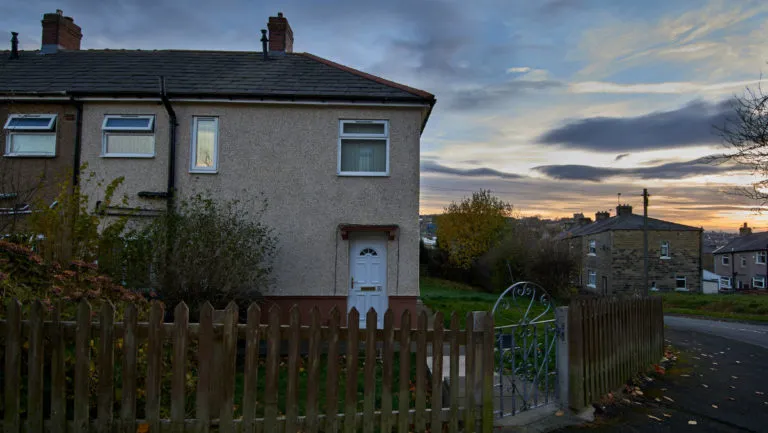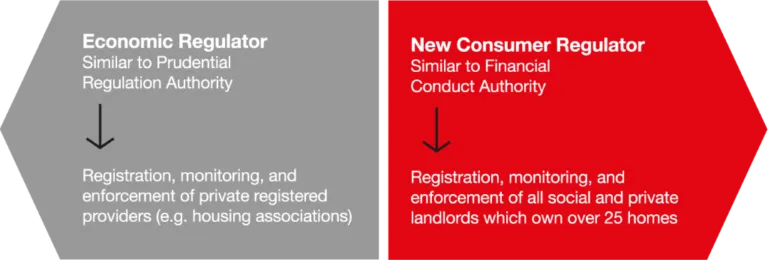A two-pronged plan for better social housing
Published: by Guest blog

Guest blog by Rob Gershon, Housing Quality Network’s Residents’ Lead Associate
It might sound odd to say, but the Shelter commission was not a typical housing commission. It was made up of a diverse group of people from different backgrounds and perspectives, including politicians, tenants, community group activists (like me), but none from the traditional housing world.
The long and the short of the homebuilding bit of the report is that the commission agreed – we needed more homes, funded by government, to make them more affordable.
Other aspects of the commission report are just as, if not more, important. This is true of the two-pronged approach the commission takes to tenant voice and regulation. The first prong being about redressing the balance of power between tenants and landlords, and the second about ensuring that in future the regulation of social housing is more proactive, effective and accountable.
For a number of years, my work, and that of many others involved in co-regulation, has been to find better ways for landlords to adhere to “consumer standards”. These are supposed to be about giving tenants power and since 2010 have been implemented by landlords themselves.
The current Regulator does not actively police or regulate unless tenants bodies referring their landlords can prove that a problem is widespread or is a threat to a tenant’s health or life. The Grenfell Tower Fire has driven the public debate about this side of regulation, and since the fire, none of the regulations have changed or been updated, and neither has the way they are managed.
We also highlighted cases where tenants often faced resistance from their landlords to meet the most basic of standards, but this was also balanced with case studies from good news stories too. It was all this that led commissioners to outline the recommendations on shifting power balance and reforming the regulator.
A new regulator to protect renters and to ensure their voices are heard

The call for a new separate consumer regulator is a cornerstone of the commission report. After the catastrophe in the banking sector exposed the huge dangers people can be exposed to when regulators do not intervene the government decided that the regulation of banks should be separated from regulation of service standards and the protection of consumers. People who are responsible for poor or dangerous practice are held to account and prosecuted if the law broken.
It seems almost inconceivable that people whose homes are provided by somebody else do not have an effective way to take action if they are endangered or treated poorly by organisations that have a responsibility to protect them. The commission proposes a similar shake up of the current Regulator of Social Housing and that the new consumer regulator (based on the model of the Financial Conduct Authority) should operate alongside a slimmed down Regulator of Social Housing (see above).
Recommendations around regulatory reform include:
- Standards should be made clearer and more specific; setting clear, minimum expectations such as timescales for dealing with complaints.
- Tenants should not have to prove their health or life is at risk
- Direct access to legal help to make clear their rights and responsibilities and explain them during disputes
- The new regulator should cover standards in the private rented sector too and that registration, enforcement and monitoring of all landlords with more than 25 homes.
Tenant voice
The commission recommends further areas of reform to strengthen tenant power by giving tenants a voice in landlord governance and decision making; recognising tenant panels, groups and organisations; and giving tenants a voice in decision made by national regional, and local government**.**
Recommendations include:
- The government compile good practice on cooperative and mutual social housing models and that any local proposals to transfer homes to such models should only be triggered by resident and only happen if the majority of residents vote for it. This recommendation is against a backdrop of falling numbers of residents featuring at a decision-making level from a pretty low start, and often reduced funding for resident influence schemes.
- The establishment and recognition of Tenant Panels and Tenant and Resident Associations and calls for any tenant group, whether formerly recognised by their landlord or not, to be given access to the same new regulatory regime as landlord-approved and sponsored groups.
- The establishment of an independent tenants’ organisation, or tenants’ union, to represent the views of tenants in social housing to national and local government, and involve as wide a range of tenants as possible.
Although in many ways the report launch feels like the end of a commission, I know that this is just the beginning. In the past I have campaigned tirelessly for change, and I look forward to the next stage.
Rob Gershon is a Council Tenant, Housing Quality Network’s Residents’ Lead Associate and commissioner for Shelter’s social housing commission. He has written a blog, outlining two key proposals that came out of The Future of Social Housing report.
Already over 23,000 Shelter supporters have signed the petition demanding that 3.1 million more social homes are built, but with Shelter supporters from all over the country, we can continue to campaign, and win, much needed, long overdue change.